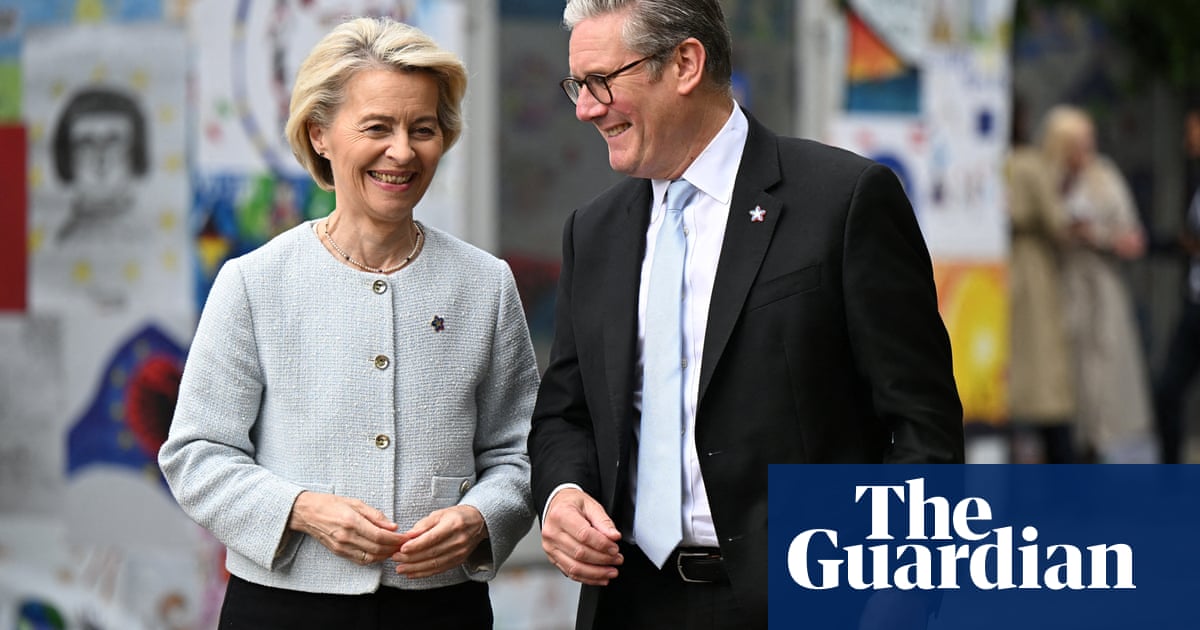Talks between the UK and EU over a significant reset to relations achieved a last-minute breakthrough overnight, believed to be about fishing rights, just before the start of a crunch summit in London.
With Keir Starmer preparing to host the European Commission president, Ursula von der Leyen, in London on Monday morning after late-night talks, stumbling blocks included the timescale for agreement on access to British waters for the EU’s fishers, and checks on foods and similar products.
A UK source said on Monday morning that there had been “a late breakthrough”, although with some details still to be finalised and an update expected in late morning.
Fishing appeared to be central to the last-minute scramble, with reports that the UK and EU had agreed a 10-year deal on boats from the bloc accessing British waters, beyond the four-year deal proposed by the Starmer government.
Brussels has linked fishing with an agreement to drop checks and bureaucracy around the sale of food, animal and other agricultural products, known as sanitary and phytosanitary goods. The EU has suggested this should be pegged to the same timescale as fish.
Speaking early on Monday, the trade and business secretary, Jonathan Reynolds, refused to say whether a deal had been completed, but said there was a “real prize” on offer for the UK.
“The current deal has huge gaps in it, not just on areas to do with trade, but to do with security as well,” he told Times Radio. “So this is about making people better off, about making the country more secure, about making sure there are more jobs in the UK.”
While Downing Street has insisted that the meeting in London is part of a process, not a single event, with talks able to continue on any subject that is not agreed, the overnight negotiations have resembled the sometimes chaotic talks on the original Brexit departure.
As well as fishing and simpler processes for food exports to and from the EU, talks have focused on better access to EU defence funding for UK companies, the possibility of a mutual youth mobility scheme, and ways to allow UK travellers entering the EU quicker access via e-passport gates.
Fishing was a totemic part of much of the original Brexit talks, despite the industry’s relatively low contribution to UK GDP, and the Conservatives and Reform UK have warned against any deal which, in their view, would sell out UK the fishing fleet.
Mike Cohen, the chief executive of the National Federation of Fishermen’s Organisations, said on Monday morning that reaction in the industry would depend on what had been secured in return for any longer-term access to UK waters.
“If a deal has been done for a longer term, for me the question is: what have we achieved in return for that?” he told BBC Radio 4’s Today programme. “If we’ve gained some benefit for the fishing industry, for fishing communities, then that could be a deal worth doing. It’s all going to be about the details.
“If we’ve got nothing in return for that, for the fishermen and their businesses, the communities that depend on them, then that would have been a very poor deal from our point of view.”



